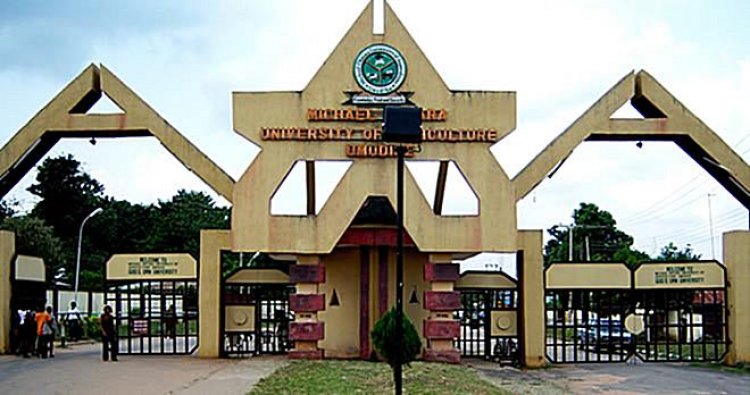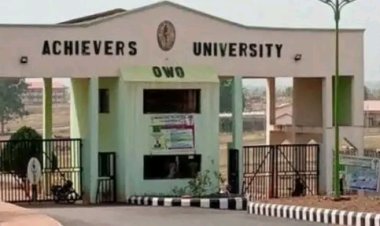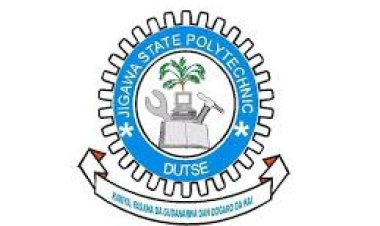Michael Okpara University Agribusiness Incubation Centre Targets National Food Security
The Agribusiness Incubation Centre at Michael Okpara University of Agriculture is driving food security and combating unemployment through innovative agribusiness training and capacity building.

Phillips Nto, the Director of the Agribusiness Incubation Centre at Michael Okpara University of Agriculture, Umudike, shares insights into the center's mission to bolster food security, reduce unemployment, and address national challenges.
1. Core Mandate and Plans:
Nto highlights the critical role of the Agribusiness Incubation Centre in addressing Nigeria's economic challenges. The center, established under the Renewed Hope Agenda, focuses on reversing food insecurity, high unemployment rates, and poverty. Nto emphasizes the importance of youth engagement in agribusiness to achieve food sufficiency, especially in Abia State. The center provides training and capacity building in modern agribusiness value chains and entrepreneurship.
2. Community Acceptance and Partnerships:
Since its inception, the center has witnessed significant patronage, reflecting the community's eagerness to address prevailing hardships. Noteworthy is the collaboration with National Assembly members and state governments to train constituents on modern farming techniques. The center's inclusive approach and partnerships underscore its commitment to fostering agricultural development at grassroots levels.
RECOMMENDED: NITIMUN 2024 Extends Essay Competition to Michael Okpara University Students
3. Economic Challenges and Solutions:
Nto criticizes the current administration's nepotistic tendencies, citing the need for merit-based appointments to drive economic recovery effectively. He emphasizes the importance of competent leadership in formulating unbiased policies and restoring citizen and investor confidence.
4. Security Concerns and State Police Debate:
While acknowledging government efforts to tackle security challenges, Nto remains skeptical about the efficacy of state police in resolving national security issues. He argues that state police may only address minor crimes and could exacerbate existing challenges without comprehensive federal support.
ALSO SEE: MOUAU Holds Emergency Senate Meeting to Navigate Academic Resumption Challenges
5. Assessment of the Current Administration:
Nto offers a nuanced assessment of President Bola Ahmed Tinubu's administration, highlighting areas of strength and weakness. He emphasizes the need for tangible improvements in key areas such as food availability, power supply, ease of doing business, and employment opportunities.
6. Impact of Regional Unrest on the Economy:
Nto underscores the interconnectedness of regional unrest and its broader impact on the Nigerian economy. He urges for a holistic approach to address socio-political tensions, emphasizing the need for national cohesion and inclusivity.
RELATED: MOUAU Agribusiness Incubation Centre Partners with Hon. Onwusibe to Empower Constituents
7. Students' Loan Bill and Economic Viability:
Expressing concerns over the students' loan bill, Nto questions the feasibility of providing loans to tertiary students amidst high unemployment rates. He suggests alternative measures such as bursary awards for outstanding students, coupled with efforts to create conducive job environments.
8. Subsidy Removal and Economic Implications:
Nto critiques the open removal and subsequent reinstatement of subsidies, warning of adverse effects on production and living standards. He emphasizes the importance of stable power supply and strategic economic policies to mitigate the impact of subsidy fluctuations.
Nto's insights shed light on the multifaceted challenges facing Nigeria's agricultural and economic landscape. The Agribusiness Incubation Centre's proactive approach exemplifies a concerted effort towards achieving food security and sustainable development.

 Mary Nwaeze
Mary Nwaeze 



